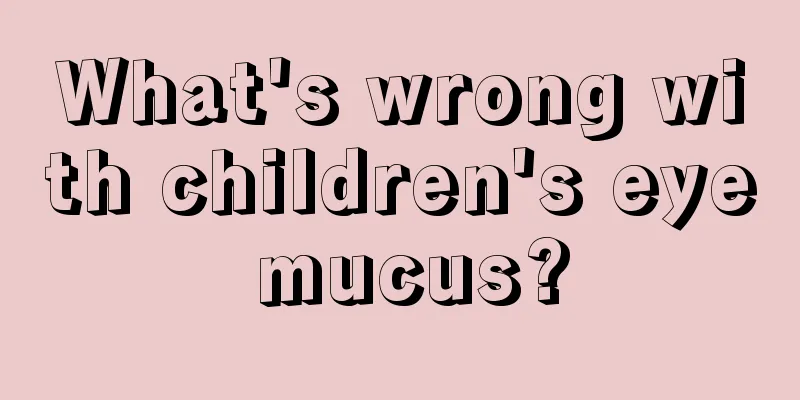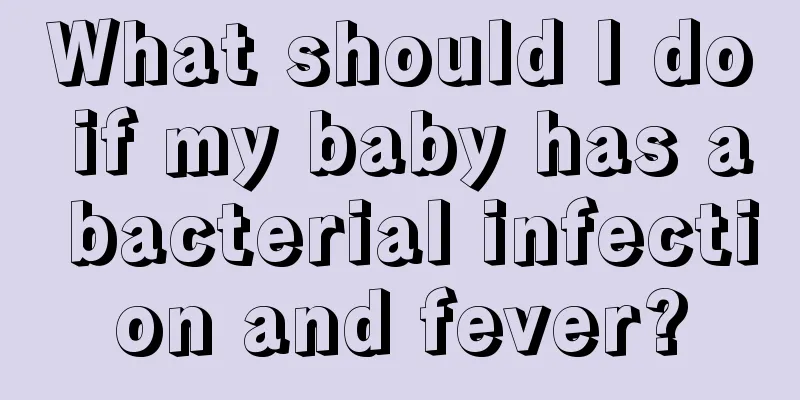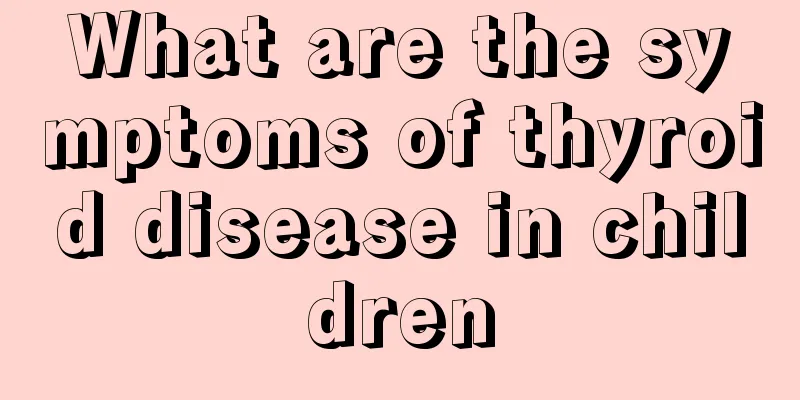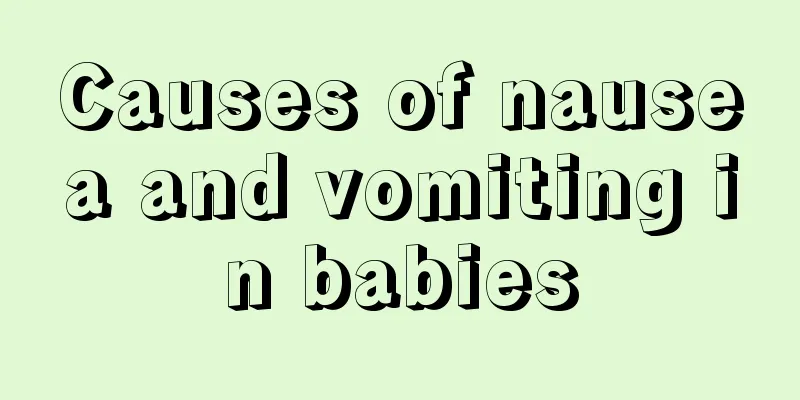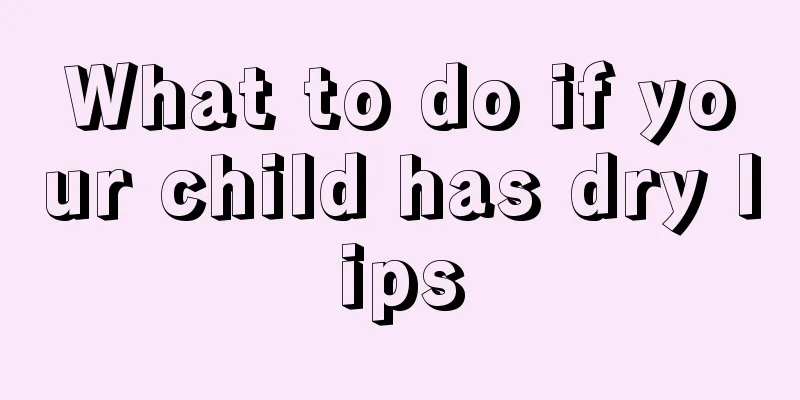What diseases should children be careful of if they have a long-term cough?
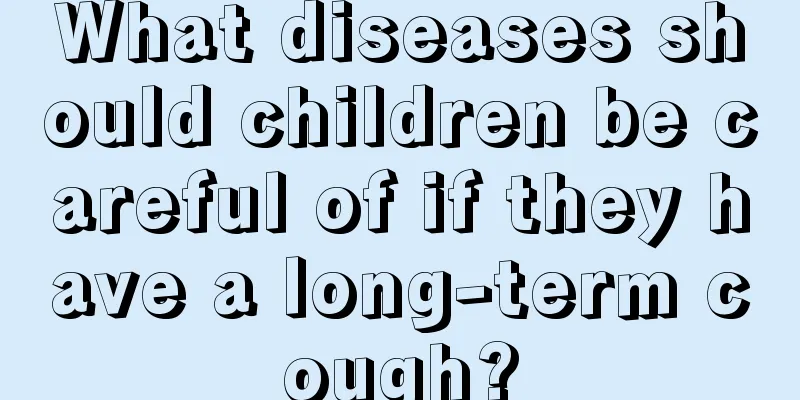
|
Children's long-term cough can make our parents very anxious, but many parents do not know how to deal with this situation. Therefore, we must carry out relevant treatment of this disease. If we want to deal with this disease, we must first understand the cause of the disease. So what diseases should children be wary of if they have a long-term cough? Let’s take a look at how authoritative experts answer this question. In fact, there are many reasons for coughing. It not only involves the respiratory system, but some are also related to ear, nose, throat, digestive system diseases, etc. We usually call a cough that lasts for one month, with cough as the main symptom and no obvious lesions in chest X-ray examination, a chronic cough. Since children with chronic cough rarely have other accompanying symptoms and X-ray examinations show no abnormalities, the rate of misdiagnosis and mistreatment is quite high. Many children are misdiagnosed with "interstitial pneumonia" or "bronchitis." 1. Cough after infection Children are prone to coughing after respiratory tract infections, but it usually lasts for about one or two weeks and no more than a month. The so-called infection is not necessarily a bacterial infection in the usual sense. It may be a viral infection, a mycoplasma infection, or the antibiotics used may be insensitive to the infecting bacteria. However, many parents like to give their children antibiotics at home. If the selected drugs are inappropriate, the child's cough will be prolonged. At this time, you need to go to the hospital in time and let the doctor help you choose the right medicine. Postnasal drip syndrome This is because nasal diseases cause secretions to flow back into the nose or throat, or flow back into the glottis and trachea, causing coughing. Common diseases in pediatrics are allergic rhinitis, sinusitis and adenoids. In addition to coughing and expectoration, such children usually also complain of throat dripping, or nasal itching, nasal congestion, runny nose, sneezing, etc. 3. Gastroesophageal Reflux Syndrome Gastroesophageal reflux cough mostly occurs at night or shortly after sleep, with paroxysmal coughing. Some children have reflux symptoms such as acid reflux, vomiting, hiccups, heartburn, and indigestion. However, the symptoms in children, especially infants and young children, are atypical, and respiratory symptoms are often more prominent. 4. Cough variant asthma This is a special type of bronchial asthma characterized by cough but without typical symptoms and signs. It is easy to be misdiagnosed because there are no obvious symptoms such as wheezing and shortness of breath. Children mainly suffer from irritating dry cough and night cough. Colds, cold air, fumes, pollen season, etc. can easily induce coughs. Children who were prone to eczema when they were young and have family allergies (such as allergic rhinitis, asthma, and urticaria) should be highly vigilant. 5. Mycoplasma pneumonia It is caused by Mycoplasma pneumoniae. After infection with Mycoplasma pneumoniae, all children have cough, most of which are severe and persistent coughs, some are spasmodic coughs like whooping cough, and about half of them can cough violently to vomiting, facial edema, and nasal, chest, and abdominal pain. Generally, it is a dry cough at the beginning, and there may be purulent sputum in the later stage. 90% of patients have cough for at least 3 weeks. The characteristics of this disease are severe respiratory symptoms, no obvious lung signs, and significant shadows on the chest X-ray. It has been reported that the positive rate of Mycoplasma pneumoniae in children with chronic cough is significantly higher than that in children with acute cough, indicating that Mycoplasma pneumoniae is one of the important causes of chronic cough in children. 6. Eosinophilic pneumonia Relatively rare. Some people believe that eosinophilic pneumonia is an allergic syndrome characterized by pulmonary infiltration accompanied by an increase in eosinophils in the peripheral blood. Most children have low fever, mild cough, fatigue and chest discomfort. 7. Cerebral palsy Cerebral palsy (or brain dysplasia) causing long-term cough in children is the most common disease in clinical practice, but it is also the most easily misdiagnosed disease. Because the brain is damaged, the regulation of swallowing reflex and coughing reflex becomes abnormal. Therefore, these children are most likely to suffer from repeated choking and aspiration, leading to repeated respiratory tract infections and coughing. However, in our country, not many children are diagnosed with cerebral palsy at an early stage. Parents only take their children to see a doctor when their children cannot sit or even walk as they should. In normal times, they don't even know that the recurrent coughing is caused by brain damage. 8. Tuberculosis infection Cough is one of the basic symptoms of tuberculosis in children. Tuberculosis is the infectious disease with the highest mortality rate in the world. In recent years, the incidence of tuberculosis in children has been on the rise. Globally, the control of tuberculosis is far from the ideal goal. Therefore, for all children with chronic cough, especially those in high-risk groups, the diagnosis of pulmonary tuberculosis should not be ignored even if there are no abnormal physical signs and symptoms of tuberculosis poisoning. The above is an introduction to what diseases you should be careful about if your child has a long-term cough. If problems arise in life, you must find the cause of the problem and deal with it effectively, so that you can more effectively prevent the occurrence of various diseases. In life, in addition to understanding the cause of the patient's disease, we also need to understand the patient's treatment method in order to better treat the disease. In short, when a child has a long-term cough that is difficult to control, as a parent, you must not take it lightly and should take the child to the hospital for some comprehensive and necessary examinations. |
<<: What to do if your child coughs while sleeping at night
>>: What to do if children cough with yellow phlegm
Recommend
How to treat black stool in children?
Many parents find that their baby's feces are...
Newborn baby has not gained weight in 15 days
The weight of a newborn is a matter of great conc...
Why does my baby always make the sound of swallowing saliva?
We all have this experience, that is, we hear the...
How many times does a 2 month old baby poop?
People are always concerned about children's ...
What should I do if my child gets angry easily?
Parents should pay attention to children who get ...
What to do if your two-month-old baby spits up frequently
Many parents find that their children often spit ...
Does a child have breast pain during development?
Breasts are one of the most important organs in t...
What to do if your child doesn't like to sleep
Children's reluctance to sleep is a problem t...
Symptoms of dental caries in children, what is considered dental caries
Good teeth have a great impact on a child's l...
How many days do babies usually receive anti-inflammatory injections?
For babies, there will also be some inflammation ...
Symptoms of an inflamed belly button in babies
We all know that when a baby is in the mother'...
How to clean children's oily ears?
If a child has oily ears, they must be cleaned pr...
What should I do if my baby has diarrhea and cough?
Many children catch a cold several times a year, ...
What are the standard height and weight charts for 1-year-old babies?
When the baby is growing, the standards for each ...
What should I do if my baby drinks eye drops?
Young children have just been in the world for a ...
